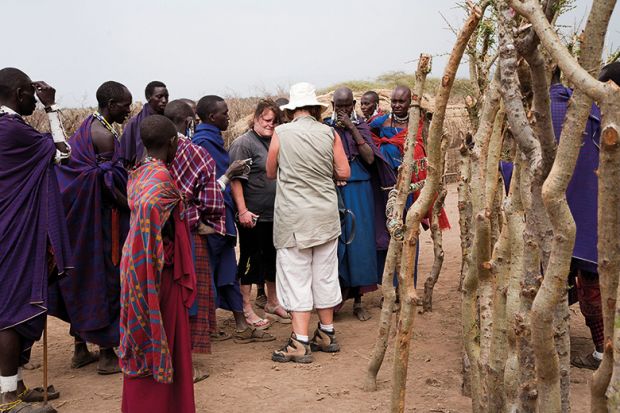Research can tackle major challenges, give rise to new knowledge and opportunities, and enlighten humankind. But it can also seriously harm vulnerable communities. When exploitation occurs in international collaborative research, the European Commission describes it as “ethics dumping” – the practice of exporting unethical research into regions with less stringent regulations or compliance standards.
Ethics dumping is obvious when participants in resource-poor settings enrol in clinical studies just to access healthcare while foreign researchers develop medication for their country of origin. However, ethics dumping is not limited to medical research. There are published cases in many disciplines, including social sciences, IT, agricultural research and animal experimentation.
In the context of research, ethics dumping can occur for many reasons. It can be the result of intentional exploitation, or it may be due to insufficient ethics awareness on the part of the researcher, ethics committees or their institutions. Some sensitive ethical challenges are simply unknown to researchers from a high-income country.
In some instances, researchers may be unaware of local customs, traditions and spiritual beliefs that are different to theirs. For example, where there are local beliefs about the sanctity of the human body, this would need to be taken into account when undertaking medical research involving blood or tissue samples.
In other cases, researchers might use inappropriate methods for seeking consent that fail to consider variations in spoken language, levels of literacy, use of terminology or any existing community protocols. Regardless of whether ethics dumping is intentional or unintentional, the results are often the same; individuals, communities, animals and environments can be harmed in the process.
The commission is taking proactive steps to eliminate ethics dumping and has recently adopted a new Global Code of Conduct for Research in Resource-Poor Settings, developed by the European Union-funded project Trust. The code is now a mandatory reference document for applicants to current (Horizon 2020) and future (Horizon Europe) funding streams, helping to ensure immediate and extensive impact.
Significantly, the code was co-developed by an international team including representatives from highly vulnerable populations who have first-hand experience of ethics dumping, including the San indigenous peoples from the Kalahari and sex workers from Majengo, an informal settlement in Nairobi.
Their experiences, combined with input from a wide variety of sources, revealed more than 88 individual risks for the exploitation of individuals, institutions, communities, animals and environments in low- and middle-income countries.
The new code fills a niche that no other code has occupied before. It concentrates solely on the potentially highly sensitive situations that can occur when researchers from high-income countries undertake work in low- and middle-income countries, and it applies to all disciplines. It consists of 23 clearly articulated articles that help funders, researchers, communities and individuals to recognise and address potential ethical pitfalls.
Crucially, it emphasises that local communities must be involved in research in meaningful ways, right from the start, and that the end result must provide local benefits. “Helicopter research”, whereby researchers fly in, conduct their research and then fly out again, is often unethical. To help to eradicate this, researchers from high-income countries should establish long-term, mutually beneficial relationships with counterparts in resource-poor settings.
This global effort is vital to tackle what has become a growing problem around the world, and stamp out the practice of ethics dumping once and for all. With this new standard in place, collaborators can aim for equitable partnerships and create a future for transnational research that looks far brighter.
Kate Chatfield is deputy director for the Centre of Professional Ethics at the University of Central Lancashire.
Register to continue
Why register?
- Registration is free and only takes a moment
- Once registered, you can read 3 articles a month
- Sign up for our newsletter
Subscribe
Or subscribe for unlimited access to:
- Unlimited access to news, views, insights & reviews
- Digital editions
- Digital access to THE’s university and college rankings analysis
Already registered or a current subscriber?




